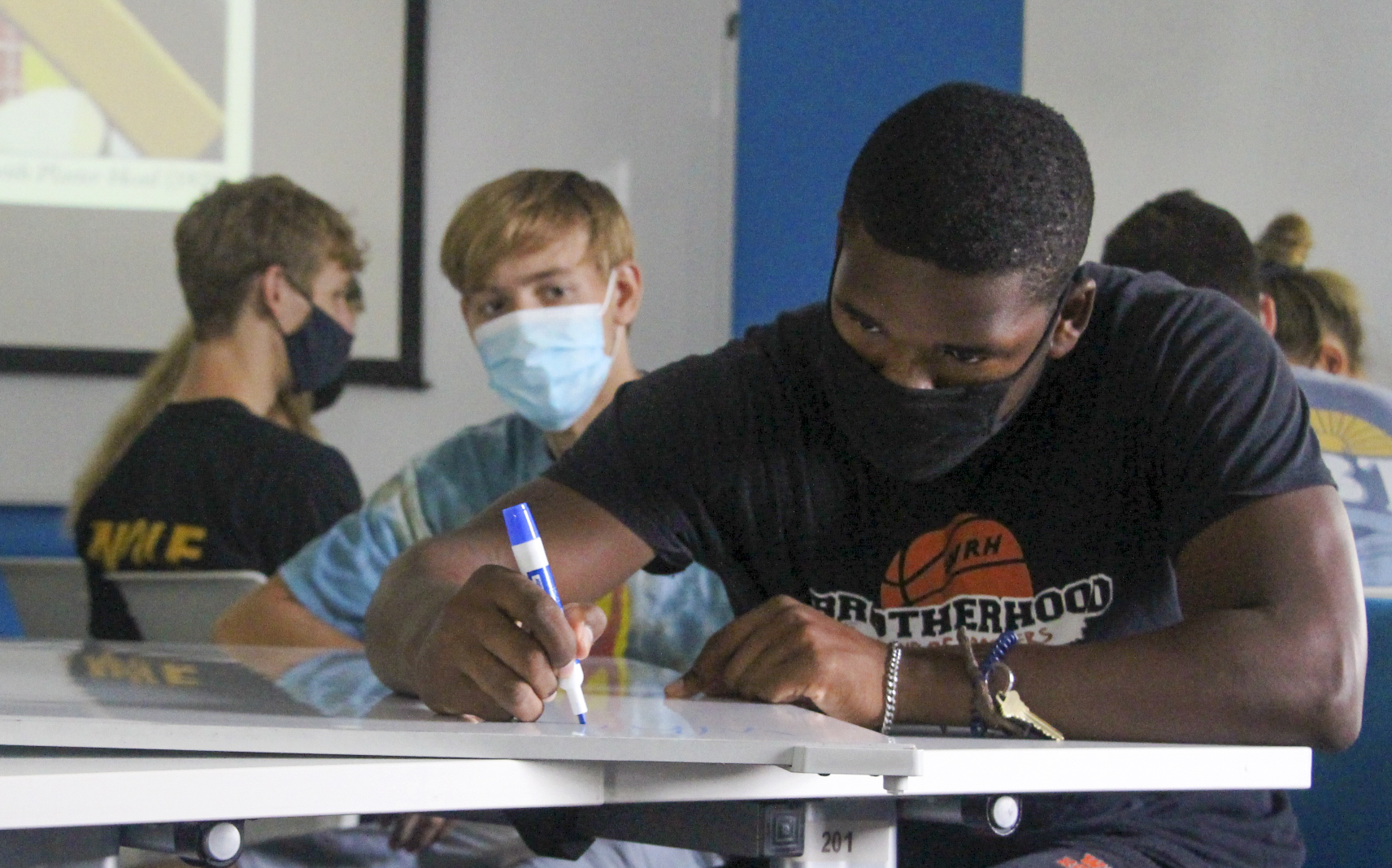Offered for the first time in 2021-22, the data analytics and classical studies majors are designed to be applied to an array of disciplines
Two new interdisciplinary majors in Elon College, the College of Arts and Sciences are designed to appeal to students with broad interests who want to deepen their understanding of the world.
The Department of Mathematics and Statistics launched the data analytics major this fall. The Classical Studies Program has expanded its pre-existing minor into a major.
Here’s a closer look at the programs.

Data Analytics
As a complementary major, students across Elon University are encouraged to apply data analytics to various areas of study. The major requires an accompanying major or minor and is designed for nontraditional mathematics and statistics majors. The only pre-requisite is the Core Curriculum’s first year math requirement.
“Our goal was accessibility,” said Associate Professor of Statistics Laura Taylor. “We wanted all students to see themselves in this major, and that lines up with the Boldly Elon strategic plan of increasing students’ data competency.”
Data are increasingly central to a range of fields, and expert data analytics will play a vital role in future industries and disciplines. Math and statistics faculty collaborated with colleagues across the university and gathered input from alumni working in data analytics to design the major. It includes electives in the Love School of Business, the School of Communications and the Department of Political Science and Policy Studies. More electives from across the arts and sciences are expected to be added as the program grows.
“We purposefully designed this major to require an accompanying major or minor because data never exists in a vacuum. It has to have meaningful context,” Taylor said.

Math and statistics faculty will introduce two new courses this year: MTH 2300: Mathematical Methods for Data Analysis and STS 3300. Those courses teach foundational aspects of data analytics, reproducibility in research and ethics. The major includes five required courses in statistics and computer science, and two electives in business, management, economics, computer science or policy studies. Seniors must complete a required capstone.
The data analytics major is separate from the existing statistics major with data analytics concentration, which requires more high-level math courses, fewer interdisciplinary course electives and doesn’t require an accompanying major or minor.
More information about the major can be found in the 2021-22 Academic Catalog.
Classical Studies
The classical studies major allows for deep exploration of the enduring relevance of the languages, history and cultures of the ancient world.

The classical studies minor was increasingly popular with students, and student interest prompted the expansion of the program into a major with two tracks: ancient languages and ancient civilizations. The program equips students to be critically thinking, democratic citizens able to interrogate how the past continues to influence the modern world.
“There are traces of the past everywhere around us. What’s more important than recognizing those traces is to interrogate them,” said Kristina Meinking, associate professor of classical languages and the program’s coordinator. “Picking away at the ways in which the past is used, misused and misrepresented is one of the main values within our discipline that I wish for my students to have.”
The major is available in two concentrations — ancient languages and ancient civilizations — and complements other disciplines offered at Elon. Classical studies spans numerous disciplines including art, history, religion, philosophy and world languages.
“There’s no one way into this discipline,” Meinking said. “Our students become comfortable with ambiguity and discover that even though a system may have been around for 2,000 years, you can revisit it and apply theories from any number of lenses. Even though something is fantastically old, it can also be fantastically new.”
Both tracks require the classical mythology course and four credit hours of directed research over one to two academic years. Electives include courses in history, art history, literature, religious studies, philosophy, politics and world languages among other disciplines. Majors can expect to gain experience in intercultural competence, interpreting primary sources, pursuing original research and studying abroad.
More information and a detailed list of electives is available in the 2021-22 Academic Catalog.



